
Your current level of motivation is somewhere between 0 and 100%. Here is what you didn’t know about motivation. Let’s start with kids and then go straight to you, me and those you deal with every single day.
Did you know that motivation to do well on your kids IQ test triggers better IQ scores which then triggers future performance in LIFE?
You see it’s not JUST the IQ score that predicts a more successful life, it’s ALSO the MOTIVATION the test taker HAD when they took the test.
Did you know that the self affirmation of “I Will…” is largely useless when compared with asking your Self, “Will I….?” Questions (see Kevin Hogan Channel.)
Questions about whether you will do something trigger motivation to do it. Saying you will do it for the vast majority does nothing.
I have good news for you! YOU can dial your motivation level to any magnitude you choose.
I have bad news for you… Sometimes the dial is sticky and needs pushing.
Motivation research teaches you a lot about what an average person is likely to do in various contexts.
It’s important that you and I know the latest and best in motivation because we must know how to get past obstacles to an outcome we have established.
This week new research was published that showed that in North America people are motivated at first by thinking about all the cool benefits a specific outcome will have for them. (I’ll look better in new clothes if I lose weight, I’ll make more money if I find a better job.)
Then the researchers found that as people get closer to desired outcomes, people focus more on steering clear of the obstacles on the path. (Can’t have that chocolate cake, it will suck if I fail, I’m not going to fit into those pants) Later in the article I will show you WHERE obstacle preparation belongs in motivaation (obviously BEFORE you begin is one…the other is…)
Simple enough.
Researchers found that North Americans are really good at saying I want X and then thinking about the benefits of having X and then starting out on the trek to attain their goal. Americans are great “beginners.”
And you know this because people who set New Years Resolutions are usually finished trying long before January 15.
So what do Olya Bullard & Rajesh V. Manchanda suggest based in their study, How goal progress influences regulatory focus in goal pursuit, published in the Journal of Consumer Psychology?

The results of the study suggest that people may have better luck sustaining motivation in the late stages if they FOCUS ON what to AVOID in order to reach their goals.
For those who are trying to save money for a house or a trip, for example, initially it may work to pursue positive saving strategies like getting a higher paying job or investing money. Later in the process, focus on avoidance strategies like going out to dinner less often or forgoing expensive purchases.
These findings also have implications for marketers, Bullard says. Companies can frame their advertisements based on whether consumers are in early or later stages of pursuing their goals.
For example, a gym catering to people who are just starting to get in shape could emphasize the exciting opportunities and latest fitness technology at the gym that will help members achieve their aspirations.
On the other hand, an ad for a gym catering for people well on their way to reaching a fitness goal could emphasize safe and proven technologies that will secure expectations for fitness and offer “satisfaction” guarantees.
Motivating someone to action is similar to persuading them.
If you deal with other people, getting them to do anything can be challenging. Perhaps after today, that task will get a lot easier.
Universal Motivators?
Certain situations motivate almost everyone.
When the earth shakes, you look up.
When you are hungry, you go search for food.
When you are tired, you seek out sleep.

Meanwhile, certain desires motivate many, but by no one desire drives all. Even the fight or flight reaction and the desire to have sex (reproduce) are not universally switched on in all people.
And the most fascinating things motivate your behavior and that of those around you.
Brand new data: Give younger people an avatar in role playing games online and what behavior are they more likely to do next?
Turn the page and continue.
Fascinating Motivator
Imagine you were playing a role playing game online. Your game avatar choices are limited to elderly people. (Ingenious study results about to be shared.)
You play for 20 minutes, get offline and put twice as much money in your retirement account as people who played standard online characters.
Serious about making money or getting people to do things? Then make sure you let them experience a modified identity! Connect with Your Self of Tomorrow in a real way, and you treat Your Current Self differently.
Your IDENTITY shifts in remarkable ways in different environments, and so do your behaviors.
What happens when you go into the video game and start interacting with attractive people?
The research shows you are likely to interact offline with better looking people.
The girl or guy you wouldn’t have approached is now very approachable.
Brains are pretty cool things and they can be changed and triggered to motivate the body in simple, but not always predictable, ways.

Motivating Others
But what about the people around you? How do you cause others to improve their performance?
You can motivate improved performance, for example, in many different ways.
There’s a good chance you have kids or people who work for you. Both respond similarly to persuasion and motivation efforts. It would be useful to know whether giving bonuses is more effective at motivating employees than giving them merit raises. (You can see how that maps over to things other than money, yes?)
In the second, you get to see if avoiding punishment is its own reward. (That’s one of the big keys in marketing and selling, right?)
In the third, you’ll read a fascinating report where one of my favorite researchers, Steven Reiss, says that there is no such thing as intrinsic motivation.
Motivators: Bonuses or Merit Raises? There is a RIGHT ANSWER.
Giving a 1 percent raise boosts employee job performance by roughly 2 percent, but offering that same money in the form of a bonus that is strongly linked to a job well done can improve job performance by almost 20 percent (!), finds a Cornell study on the relationship between pay and performance.
Pause and look at this again:
Performance (arguably) really ONLY comes down to the context of WHY.
1% RAISE on a $60,000 salary ($600) increases performance by 2%. This is potentially excellent.
1% BONUS on a $60,000 salary ($600) linked to a JOB WELL DONE can improve performance by 19%. And that is SHOCKING!
WOW!

Same money (almost nothing) and yet a new magnitude of performance. Absolutely incredible!
“I looked at both how much people are paid and also how pay increases and bonuses are given,” said Michael Sturman, who conducted the study.
He found that “by changing the strength of the pay-for-performance relationship [awarding bonuses], you can improve performance by up to 19 percent.”
In other words, giving someone a 1 percent raise is 1/10 as effective as giving them a one time bonus of the same amount of money. The raise would likely carry into the future, of course, and a bonus is a one time only deal.
Sounds like a slot machine. That which is random sometimes is more driving than that which is a sure thing. That shouldn’t be the case…but…
When Sturman looked at the experience of a diversified services company, he found that an across-the-board raise in one year meant better performance in the following year and that paying above the market also produced higher performance.
“While both across-the-board raises and bonuses improved performance, bonuses stood out when pay was linked solidly to performance,” he said.
Sturman noted that he studied only one company that had almost 700 employees working in the United States. “The point is, pay methods can be used strategically to improve performance,” he concluded. “The payroll is not merely an expense to be reduced, but an investment that can be used strategically.”
Bonuses buy top performance. Previous research has shown that when “paying for grades” in school is offered to kids, they get better grades. The downside is that the grades drop when the money is pulled out of the equation.
We’ll come back to that problem shortly. If motivation rewards have been over used and you’re not getting yourself or your people where you need them to be, does it make sense to motivate by utilizing the avoidance of punishment?
Is avoiding punishment effective motivation?:Is Avoiding Punishment an Effective Motivational Tool?
To give your child an incentive to cut the lawn, you might offer to buy her something, or you might threaten to withhold her regular allowance if she doesn’t. Does the child respond the same way to reward as she does to avoiding punishment?
You think you know the answer. I did before I saw the research. I was not correct and neither are you.
Turn the page and continue…
Psychologists have evidence from certain kinds of behavioral experiments that lead one to believe that avoiding punishment is itself a reward. The IRS has built the world’s largest example of this rather dastardly approach, by promising to punish people who don’t pay the demanded money. You can’t really “owe” taxes. You did nothing to have a debt. You simply pay or experience pain.
Pain or avoidance of pain is a necessary motivator but not in all contexts. If you really want people to feel about you the way they do the IRS, grab a gun and use it as a motivational tool. The resentment and fear will be instantaneous and last a life time.

The same areas of the brain – the medial orbitofrontal cortex – are engaged when people receive a reward or avoid a negative outcome. (Credit: O’Doherty et al., courtesy of PLoS Biology)
In a study published in the open-access journal PLoS Biology, Hackjin Kim, Shinsuke Shimojo, and John O’Doherty investigated this question by scanning the brains of humans performing a simple instrumental conditioning task. A brain area called the medial orbitofrontal cortex (OFC) has been linked to reward-related stimuli, particularly when the reward involves money.
The researchers found that the OFC is also activated for avoidance learning, supporting the hypothesis that these cognitive processes share neural mechanisms.
Sixteen people participated in the study, during which they could either lose or win one dollar in an instrumental choice task.
During the experimental trials, participants selected one of two fractal images presented on a screen. After a fractal was chosen, it became brighter, and four seconds later the participant got one of four types of feedback: reward (a picture of a dollar bill and the message, You win!), negative outcome (same image, with the text, You lost!), neutral (a scrambled bill with the text, No change), or nothing (a blank screen).
During reward trials, the choice led to a high or low probability of reward (earning a dollar). During avoidance trials, the choice led to a high or low probability of avoiding a negative outcome (losing a dollar).
Over time, participants learned to choose fractals associated with a greater probability of reward and a lower probability of a negative outcome.
And, as predicted, the medial OFC showed a higher response when participants chose an option that resulted in not losing the dollar or in winning it.
Conversely, when participants’ choices resulted in negative outcomes and when there was no reward offered, OFC activity declined.
Compared to neutral trials, reward and avoidance events produced significantly greater brain activity, while negative outcomes and neutral events linked to no chance of reward resulted in significantly decreased activity. Kim et al. argue that these functional magnetic resonance imaging (fMRI) results provide direct evidence that avoiding bad outcomes and receiving a reward provoke a similar response in the medial OFC.
Legend Point: Avoiding negative outcomes and receiving rewards amount to the same thing for the brain: achieving a goal.

Reward serves as an external signal that reinforces behavior associated with a positive outcome.
Kim et al. explains, and punishment amounts to an intrinsic reward signal that reinforces actions linked to avoiding bad outcomes. With fMRI evidence connecting avoidance and reward circuits, researchers can now determine which neuron populations within the OFC contribute to the avoidance “reward response” and perhaps shed light on the neurobiological roots of pathological risk-seeking behavior.
Citation: Kim H, Shimojo S, O’Doherty JP. Is avoiding an aversive outcome rewarding? Neural substrates of avoidance learning in the human brain. PLoS Biol 4(8): e233. DOI: 10.1371/journal.pbio.0040233.
It would seem to make sense to pair both rewards with the compulsion to avoid punishment to optimize motivation and persuasion.
But here is the big question!
Can people be Self Motivated?
Is there such a thing as intrinsic motivation?
Can You Effectively Self Motivate? How?:
Does “Intrinsic Motivation” Even Exist?
Intrinsic motivation refers to motivation that comes from inside an individual rather than from any external or outside rewards, such as money or grades.

When you read Dan Ariely’s research, you discover that MEANING is a key motivator of human behavior.
This is so important that people do very little when other people won’t see what you have accomplished. But what if you know that even just one or two people are observing the results?
People do more and feel better about it.
I’ve told people for years to NEVER CHASE MONEY. Someone sent me a video of Grant Cardone (I don’t know the guy so I don’t actually know if the video is him.) and this guy is telling people to chase money.
Let me reiterate. NEVER CHASE MONEY.
The research is clear: Salespeople who are in it just for the money are more likely to take advantage of clients… and the company.
NEVER CHASE MONEY. That action simply makes you a bad person. Money must be the REWARD not the goal of the experience.
In other words you aren’t playing to win the Super Bowl to get the $100,000 bonus from the NFL. You’re playing to win the Super Bowl to WIN the Super Bowl and BECAUSE you won, you ALSO receive a bonus.
Students motivated by grades are more likely to cheat.
I will delve into some research in these areas next week. For now I want to give the counterpoint…first.

Motivation is often easier than you might think. Motivational researchers have come up with some new distinctions…
While some psychologists still argue that people perform better when they do something because they want to — rather than for some kind of reward, such as money — Dr. Steven Reiss suggests we shouldn’t even make that distinction.
Reiss, a professor of Psychology at OSU, argues that a diverse range of human motivations can’t be forced into these categories of intrinsic and extrinsic motivations. Psychologists say intrinsic motivations are those that arise from within – doing something because you want to – while extrinsic motivations mean people are seeking a reward, such as money, a good grade in class, or a trophy at a sporting event.
Reiss says, “They are taking many diverse human needs and motivations, putting them into just two categories, and then saying one type of motivation is better than another,” in a recent issue of the journal, Behavior Analyst.
“But there is no real evidence that intrinsic motivation even exists.”
The issue is more than academic, Reiss said. Many sports psychology books, and books advising how to motivate students and business people, tout the value of intrinsic motivation and warn that extrinsic rewards can undermine people’s performance.
The argument is that people should do something because they enjoy it, and that rewards only sabotage natural desire.
Reiss disagrees!
Money Can Be an Effective Motivator
“There is no reason that money can’t be an effective motivator, or that grades can’t motivate students in school,” he said. “It’s all a matter of individual differences. Different people are motivated in different ways.”
Reiss has developed and tested a theory of motivation that states there are 16 basic desires that guide nearly all meaningful behavior, including power, independence, curiosity, and acceptance. Whether you agree there are 16 desires or not, he said there is not any way to reduce all of these desires to just two types.
In addition to trying to fit all motivations into two types, Reiss said proponents of intrinsic motivation are also making value judgments by saying some types of motivation are better than others.
“For example, some people have said that wealth and materialism lead to inferior quality happiness, but there is no real proof of that,” he said.
Motivation by the Individual’s Desires

Dr. Reiss has made some keen discoveries and it’s going to make your life a lot easier…
“Individuals differ enormously in what makes them happy. For some competition, winning and wealth are the greatest sources of happiness, but for others, feeling competent or socializing may be more satisfying. The point is that you can’t say some motivations, like money, are inherently inferior.”
In the article, Reiss points to some of the problems he sees with the theories and studies connected to intrinsic motivation. One problem is that people who tout the value of intrinsic motivation have several different definitions for what that means, and these definitions change depending on circumstances.
One common definition, for example, is that intrinsic motivation is that which is inherently pleasurable, while extrinsic motivation is not. For example, the argument is that children are naturally curious and enjoy learning for the joy it brings them. Grades, they argue, are an extrinsic reward that fosters competition and makes learning less pleasurable.
So does it matter whether you do something you love?
Desire of Curiosity
Reiss said his research has found people show a wide range of curiosity. “Some people are very curious and enjoy spending a great deal of time learning on their own. However, many people are not very curious and don’t enjoy learning for its own sake.”
“There are many children for whom the important reward to them is the grades they get, the competition among classmates,” Reiss said. “This goes against what some psychologists say, who think competition is bad and a non-competitive attitude is good, and that learning and curiosity are intrinsic values that everyone shares. They are pushing their own value system on to everybody.”
Don’t Confuse Means and Ends
Another way of defining intrinsic motivation is the means-end definition, which says intrinsic motivation is doing what we want, whereas extrinsic motivation is doing something to get something else. For example, some might argue that children playing baseball are intrinsically motivated by the joy of playing, while a professional baseball player is extrinsically motivated, by money and championships.
But Reiss said this definition confuses means and ends. A child playing baseball may be satisfying his need for physical exercise, while the professional player is satisfying his parental instinct by providing a good income for his family.
For children and professionals, baseball is a means to two different ends.
Reiss also criticized many of the studies which proponents say prove the existence of intrinsic motivation, and how it can be undermined by extrinsic rewards.
For example, many studies have purportedly shown how people who enjoy doing a specific activity, “such as children who enjoy drawing,” do that activity less after they are offered rewards. But when the results show the subjects continue the activity even after the rewards are offered, the researchers have argued that this just shows the subjects expect to get a reward and no longer are intrinsically motivated.

“The results are always turned around to prove their hypothesis.”
Hard to Pin Point Motivations
Also, researchers have assumed that rewards simply make people less interested in the intrinsic joys of an activity. But Reiss said many of these studies haven’t considered the possibility that the negative effect of rewards has nothing to do with intrinsic or extrinsic motivations.
Instead, rewards may cause some people to pursue an activity less because of the negative feelings they cause, such as performance anxiety. Avoiding an activity because of performance anxiety related to a reward is not the same as avoiding it simply because the reward undermines intrinsic motivation.
“Too many studies that supposedly prove intrinsic motivation have serious flaws in logic, or too many important uncontrolled variables,” he said. “There needs to be more scientific rigor.”
And until scientists figure that out, it’s worth setting up long-term reward systems for yourself that are balanced by systems of punishment.
Similarly when persuading others, you want to use the same pairing to cause actions to take place.
You may not be certain WHY they said, “Yes,” but …they DID say “yes!”
The Final Solution
to Personal Success, 10 Week E Course
Begins June 17, 2025
 Kevin Hogan, Venetian Hotel and Resort, April 2024
Kevin Hogan, Venetian Hotel and Resort, April 2024
10 Week, Comprehensive Online E Course
This is the course you’ve wanted for years. This course is very different from online Courses you’ve participated in.
You may have been hooked up with an imaginary coach that was hired by a well known name to “help you” achieve an outcome in the past.
It didn’t work.
That was the first problem with other online courses is one we addressed once and for all in the Ascendant Success Algorithm Course.
The key difference between this and every other online course from anyone else on the planet is that you have daily access to Kevin Hogan. He will take your homework and evaluate it each week making suggestions and directing you when you ask, to jump obstacles and move along for real success in life, relationships, happiness, and wealth. You’ll be able to write Kevin and have him respond within 24 hours to your inquiries.
 Live in Las Vegas, Aria Resort, April 2024
Live in Las Vegas, Aria Resort, April 2024
Dozens of hours of video are here shot by Kevin alone, after everyone else went home from formal video shoots.
Kevin sits down (most of the time) and it’s as if you’re having a conversation with him personally right in the studio in his home. You’ll get to see and hear every aspect of success in the digital age, step by step. And you’ll learn how to apply and use every single thing Kevin mentions.
There are no mysteries to be had after this course. You immediately find out the value of having a personal mentor for 10 weeks. Someone whose not only done it all but has trained so many others to achieve success. Kevin has trained celebrities, actors, screenwriters, authors, TV personalities, government representatives, international bankers, entrepreneurs, athletes and sales people to name a few.
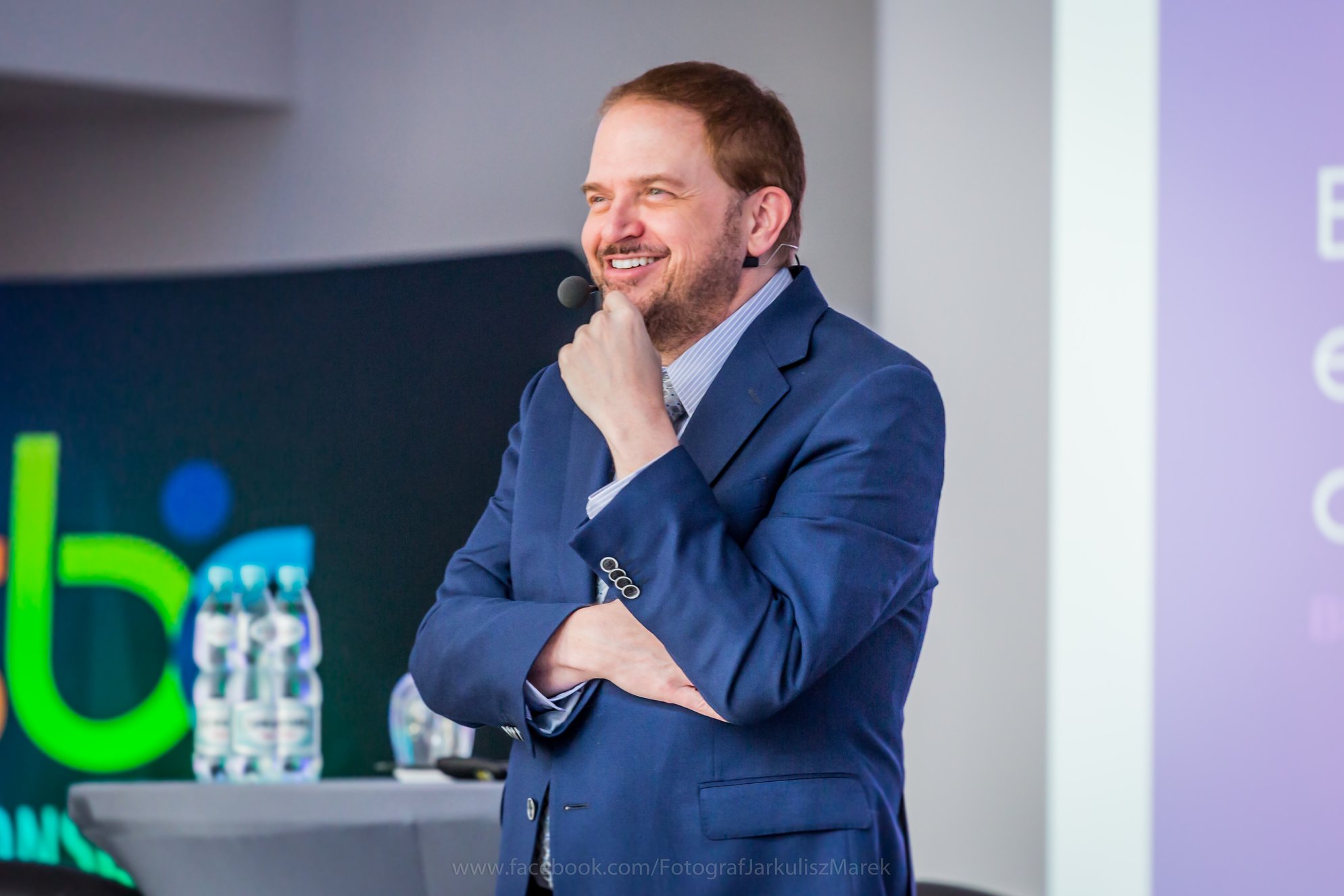 Performing for 500 in Krakow, Poland, February 2018
Performing for 500 in Krakow, Poland, February 2018
This is much more than “step by step” – you are going to win this game of life because you’ll find out all that it really takes. Kevin even shows you in Week 1, “how to get lucky” because luck plays a role in success but most people don’t know how to set the stage for luck to strike in their life. Kevin shows you how in crystal clear, easy to master increments.
“The Ascendant Success Algorithm… Gives You the Scientific Breakthrough and Your Unique Personal Artistry to Have the Life You Only Dreamed Possible”
This is the first and only success course that uses rigidly tested and proven technology to meet desired outcomes.
“When you design THE success course, you want to make sure it’s the first one that actually works based on results from those who have applied the content in the real world.” Kevin Hogan, Psy.D.
The right questions to begin with in introducing this brand new course are:
“So why doesn’t all that other success stuff work?”
“I’ve tried everything and I am not successful. Why?”
Two simple questions which took me YEARS to get the answers to before I could finally live the life I truly wanted.
 On holiday in Oslo, Norway 2019
On holiday in Oslo, Norway 2019
Let’s answer the first question, first.
The vast majority of people giving such advice and programs claiming to have answers about the ingredients of success are mostly useless.
(How do I know? Who is to say?)
1) Almost all success programs reference truly remarkable stories about billionaires like Elon Musk, Bill Gates, Jeff Bezos, Thomas Edison, Henry Ford, Mark Zuckerberg, Warren Buffett as illustrations of your own designable future.
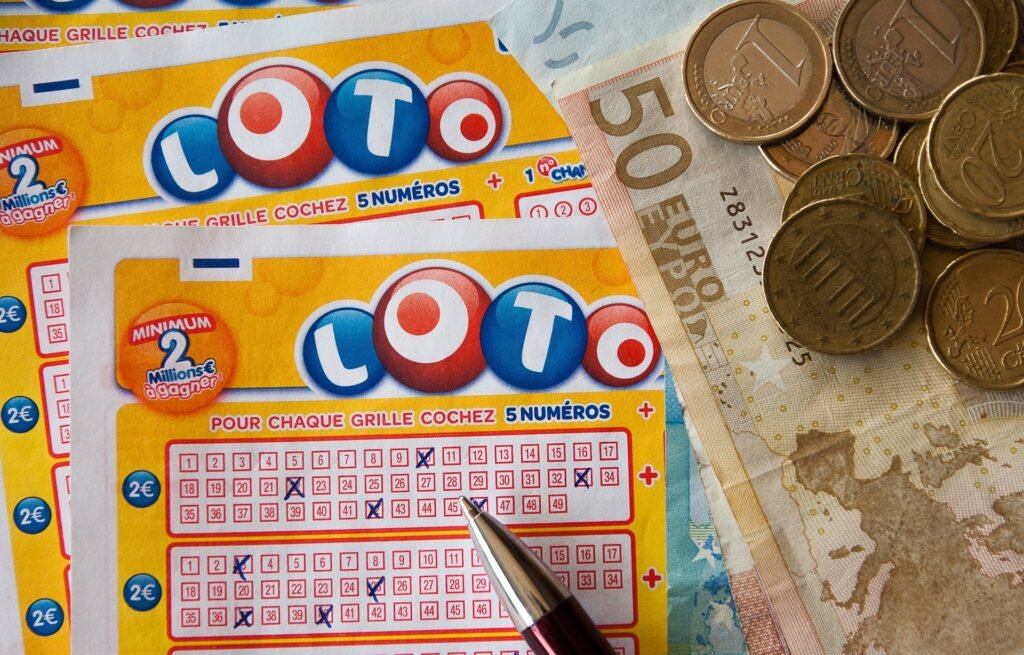
The fact is, these are the WRONG people to be using as yardsticks for YOUR success plan. These are the ultra wealthy billionaires of which there are only 1,900 on the PLANET.
You do not EVER want to try to be part of a group that has only 1,900 out of 8,000,000,000 people…when the criteria for entry into the group is a net worth of one billion dollars.
It’s easier to win the Power Ball Lottery than to become a Billionaire. (And that is not happening either.) If buying a Power Ball ticket is one of the stupidest things a person can do, then trying to become a billionaire is much worse.
In The Success Algorithm you will not hear ANY stories about billionaires. You will not be encouraged to try and replicate the things that they did.
The truth is people THINK they have answers to what makes successful people. Even more people think they can spot key behaviors that lead to success.
I’ve been studying this a long time. I’m living the life and it’s been a Herculean task to unearth the RIGHT puzzle PIECES.
 Training the Real Success Factors in Europe, 2018
Training the Real Success Factors in Europe, 2018
2) Most programs go through a list of principles and then tell you to do those things.
For example:

“Persist until you succeed.” (That’s a good piece of advice…but it’s also frought with disaster.)
Then you are told a story to support persisting. A good thing!
(Remember how many times The Psychology of Persuasion got turned down before it was published?! It’s embarassing even today!)
BUT WAIT. What about projects that failed? What about projects that took a long time to succeed? How do you know WHICH are WHICH?!
Now the question becomes…
“WHEN do you persist until you succeed?”
On what level of persistence? What contexts?

Latino Film Awards, Madrid, Spain, February 2018
This is just ONE FACTOR. Quite often, you MUST PERSIST until you STOP and CHANGE PROJECTS because many projects just aren’t going to pan out!
This means you have to know both when and HOW to CHANGE.
(Don’t worry I’ll show you that in The Success Algorithm!)
The Breakthrough to Success
Just finding the right direction is a significant task. When you finally stand in front of the RIGHT DOOR, there is one more thing that must be done!

Beating your head against a locked door in hopes it will open is a lousy idea.
Yet, if you NEED that door open (let’s say this metaphor represents the door to a successful future) then testing different tools could be pretty helpful in getting that door open.
So you go get a bunch of tools, bring them to the door and start banging and drilling and hammering and so on.
BUT then you have to ask, “How do you know when to SWITCH tools and WHICH TOOLS should you use? What if you do NOT have the right tools?!”
In fact THIS IS ONE OF THE MOST IMPORTANT QUESTIONS that is ANSWERED in The Success Algorithm
NO ONE ELSE ANYWHERE has ever ANSWERED these questions for you or anyone else.
STOP: Think about. It’s too much work to answer questions like this right? It takes time and thinking. Publishers aren’t going to wait for this. They want to publish NOW.
All I want to do it GET IT RIGHT FOR YOU.
And now I want to offer you a value, a meaningful principle to begin your motion today. This is a piece of my personal philosophy, not about the science or art of success but about what matters in LIFE.

Considering a possible move to Gdansk, Poland 2018
Be a Net Positive in People’s Lives
I want you to give more than you take in life. I want you to be generous to a fault.
I want to see you making a difference in people’s lives. I want to see you do your damnedest to
…be a NET POSITIVE in other people’s lives.

A “net positive” is Hogan Language for “I leave everyone and everywhere I go at least 1% better than when I got there.”
If you’ve ever hung out with me at an event you’ll notice I like to cause people to think, to have a better day, to feel appreciated and most importantly FEEL UNDERSTOOD.
Want to start on the Success Algorithm, RIGHT NOW? Today: Begin listening to people with the SOLE PURPOSE of understanding them. When in doubt, ASK A QUESTION.
You will hear me say this 50 times in The Success Algorithm.
People don’t listen to each other. They simply wait for their turn to talk.
Me?
I take notes.
I ask questions.
I am genuinely interested.
One of the real secrets of persuasion and of course by extension, success, is that…
 Raising funds for an orphanage in Bulgaria, 2017
Raising funds for an orphanage in Bulgaria, 2017
…if you are GENUINELY interested in others you will be not just liked but ADORED.
You can’t fake this one for long. Develop this CHARACTER TRAIT now.
In my estimation this is a good example of a NET POSITIVE.
You can say it this way as well:
“Thou shalt not hurt people.”
“Thou shalt do good stuff and avoid the bad stuff.”
The Success Algorithm will repair old programming that didn’t work.
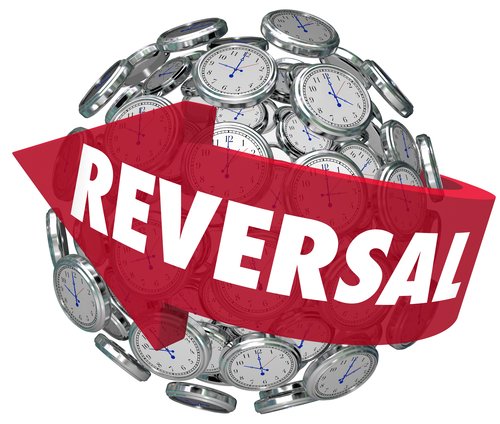
Of the principles that are often highlighted in a success program, a lot of them are either ERRANT, WRONG, subtly IMMORAL or they are of such little consequence that they are meaningless to put attention on.
Let me give you two quick examples. First…
“Just do a little bit each day.”
That might be the most useless piece of advice in attaining success that has ever been written.
You have to cut the lawn. You have a 1/2 acre yard…
You go out and cut six feet this afternoon and return the lawn mower to the garage.
Tomorrow you go out and cut another six feet. It will take years to cut the lawn!
It’s ridiculous. It’s misleading, condescending and painfully useless.
Why do “they” suggest it?
Because it SOUNDS GOOD in the seminar room. Makes for great back of room sales… and it’s garbage.
No wait, there is another that is far more damaging.
A Second Example of Required Reprogramming
“Don’t sweat the small stuff…and it’s all small stuff.”
That’s perhaps the most evil piece of advice given to good people that I have ever heard.
The child with cancer, the parent who cares for her 16 year old paralyzed since birth, the person with devastating mental illness.
The FACT is this: Some real life “stuff” is not just BIG, it’s OVERWHELMING.
In my world we help people with such “small stuff.” We try to make changes to give them a better world. We never insult the suffering to share with them that their “stuff is small.” NEVER.
It’s NOT OK.
You will finally get rid of the absolutely devastating garbage myths in The Success Algorithm… and then show you the truth, even if it is difficult to hear compared to the garbage.
The second question I opened with today,
“Kevin, I’ve tried everything and I’m still not successful, what do I do?”
 On holiday in the Amalfi Coast, Italy, 2017
On holiday in the Amalfi Coast, Italy, 2017
This is a GREAT question and one of the foundations that this course was built on!
Can I share a story with you?
Much of what you were taught to do doesn’t work, wasn’t safe, smart or rational. It didn’t generate love, happiness, resources or ANYTHING good.
This is incredibly frustrating and I know because I dealt with this for YEARS, (not days, weeks or months but YEARS) early in my career. I spent about a decade with my wheels spinning. From 1990-1997 I sold 12,000 books, earning $1 per book.
In 1996 I got a mentor, a REAL MENTOR, not some bullsh… coach. and within one year everything began to change. Miracle?
Oh there were PEAKS and VALLEYS to be sure and I was never told there would be otherwise, but everything changed.
Trying to FIND a REAL MENTOR can be another Herculean task. Perhaps 1 of every 1000 coaches out there is a truly good mentor.
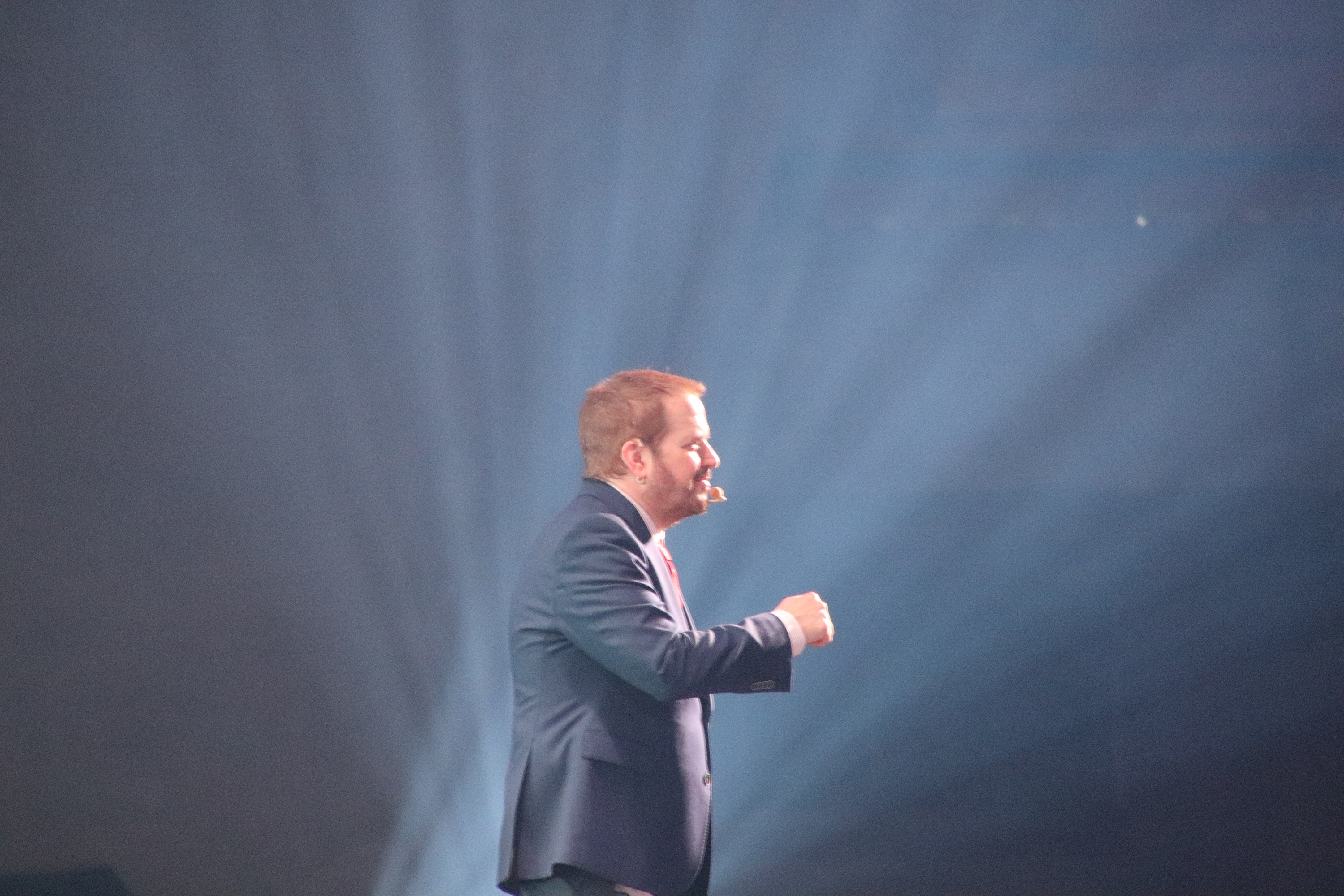 Caught in the lights, Wroclaw, Poland 2018
Caught in the lights, Wroclaw, Poland 2018
Maybe you will need one. Every successful person I know has a mentor that is a rock and a treasure chest of wisdom. He believes in you, sees your skills, recognizes your REAL POTENTIAL and can see your best paths into the future.
Another key truth is that you have NOT tried EVERYTHING that WORKS…yet.
Another fact is the people who told you to do something (perhaps unwittingly) misled you.
Can I share another story from my life with you?
 On holiday in Sorrento, 2017
On holiday in Sorrento, 2017
It’s possible you were given the instructions to build the swing set in the backyard and you ended up with two massive pieces of metal that simply didn’t fit together. (You didn’t have the skill set to apply the knowledge!)
This actually happened to me when my daughter was 10 years old.
The fact is that in 2024 science has uncovered enough about the brain, the body, behavior and social interaction as to what is required to succeed in life. NOW we can have a predictable program that can accomplish such an outcome.
I loved listening to Napoleon Hill, but some of his advice was simply dead wrong. When I was younger, I got enormous psychological lifts from listening to him. But three principles in Think and Grow Rich are counter productive and virtually assure failure. I will unwind those messes in The Success Algorithm. The truth is, I don’t think he KNEW he was wrong.
The other principles Hill and others after him shared were either spot on, or close enough. But they weren’t even close to enough. Worse, with three strikes working against you, it is like driving a Mercedes with only one tire…
The Success Algorithm is unique in that you don’t just learn a principle and hear an example. You are given a number of specific tasks and then you bring each to me for feedback and confirmation.
There are a few key aspects in implementation of concepts so they become HABITS in daily life.
Most programs I listened to when I was young, DID give ONE element of implementation but missed out on the other two.
And the fact is, I didn’t find the third element of implementation until 4 years ago. No one else did either…
Whether a “principle” turned out to be “right or wrong” almost didn’t matter. The implementation material left the reader or listener no better off than when they began…
But STOP here!
What happens when you have the right concept, the right idea and enough information to implement it into your relationship, your project, your business, your employees and you don’t then DO IT!?
Is it possible that the individual (that’s everyone) is responsible?
It is.
Quick Story Time

I can think of a handful of specific moments in life when someone told me something that, if I implemented it, the result would be a better life.
And then I didn’t do it!
(Sometimes it took YEARS to do something I had been clearly told to do.)
This one is easy.
I simply didn’t do it and neither did you.
My world changed in 1997. I needed a serious push and I said, “PUSH HARD.”
I had the right mentor. The problem was sometimes it took awhile for me to ALWAYS DO what he said to DO.
Don’t get me wrong, I was earning a fair amount of money in 1997. I was being a pretty darned good Dad to my kids and a very good husband to my wife. But I was working very hard doing things that were only going to pay what I exchanged my hours for.
Truth?
In spite of this occasional rebellion, I earned the right to do better and make more.
You?
You tell me.
Here’s what I will share with you.
Kevin says that the members of his Inner Circle have gone on to great achievements because of just this kind of personal attention, blended with their own drive, passion, effort and talents.
With The Success Algorithm your world is going to be brighter in autumn 2024.
Maybe you are experiencing what you want on the spiritual level or the level of health but not in money or your relationship.
That’s absolutely normal.
And I’m about to cause you to be …different.
This is not simply a “course.”
This is a course where you have a real mentor with NEW TOOLS that you have NEVER SEEN or even IMAGINED.
Your mentor is not an assistant or intern.
Your mentor…of course… is Kevin Hogan.
I MOVE FAST.
Walk with me next time you see me. I move like the wind. Walk with me in this course!
I get the information and I DECIDE NOW.
I analyze options very carefully and then DO ONE.
I don’t care one bit if I am wrong about something. You simply CHANGE the direction and make it RIGHT.
I’ve done everything that I will share with you. I’ve trained and taught dozens of people I’ve mentored to DO.
And for more than TWO MONTHS you will have the SAME ACCESS to me as my Inner Circle members do.
You don’t need to be online at any specific time. I will add material each week that you will do. You will be encouraged to send me your experience and plans. You can email me and ask me questions. Whether you do this or not is YOUR RESPONSIBILITY.
🙂
I PROMISE I will do SEVEN THINGS with and FOR YOU.
1) I will give you the knowledge you need to be successful.
2) I will show you HOW to use that knowledge.
3) I will give you the TOOLS you need to APPLY that knowledge.
4) I am here to CLARIFY any possible confusion so there is clarity.
5) I will tell you the likelihood of any ideas or plans working.
or not working for you.
6) If something is UNlikely to be successful whether in your personal relationships, job or business projects, I WILL TELL YOU.
7) If you ask, I will show you what to CHANGE and HOW so you SUCCEED.
You will have access to me for 70 days. That’s 10 weeks. Then I’m going to bed! Once the course is complete only Inner Circle Members have access.
You do NOT need to be online at any specific time or on any specific day. You DO need to do your projects in YOUR 10 WEEKS!
This is the rocket launch and operators manual.
The Success Algorithm is $2995.
But only for this time you save a thousand dollars and your tuition is only 1995.00.
OR
You can be in this incredible group of sharp minds that will have The Success Algorithm!
Want more details?!
This is for you, about you and your world…your current life and your future.
Finally.
It’s taken four YEARS to put this together.
Every success related program I’ve listened to totally ignores the relationships that the listener/student has. In other words, what is the wife/husband going to think? How about the neighbors? What do you DO about THAT?!?!?! You don’t have to go any further than that. If you don’t address ALL the relationships, then no program on earth will cause success for someone.
I’ve integrated the deepest level of human influence and motivation at a level no one has ever taught before. You’re going to have that feeling of self mastery and concrete confidence a short time after this course is complete.
Question-
What would life be like if you could be with the person or people you chose and have all the resources needed to take all of you into the future for as long as you lived?
Pause. Read that question again. It’s important right?
Without the influence of the right person (and people) in your life, there is no success. This course will open the door to as many resources as you need and the answers to how to make life work.
Because life should be easy…and yet it is not..
I want people gossiping about you next year…
I’d really like to see you do something next year that matters so much that people talk about you. I mean positive quality “gossip!”
“Hey did you hear what Kev did on the other side of the world at Christmas?”
After they are telling this story about YOU then I’ll be pleased.
And then there will be a story YOU will tell that inspires people to do something very similar in THEIR WORLD.
Influence = Power with Self and Others ===> Success and Happiness for MANY
Only with influence and effort does real success result.
Don’t get me wrong.
I do want (and will all but demand) you to have love, happiness, a life with meaning, personal significance, confidence, a feeling of being loved. I want you to be fulfilled.
And I want this, for you, SOONER rather than later.
But I will NOT be patient.
I heard two people talking in a pretty big group conversation last month. “Look you’re closer to dead than alive, so get your ass in gear.”
And no, I didn’t say it. I WISH I would have said it. Therefore, I WILL say it to you.
When I set out to create this online course (originally it was going to be a big DVD program….ah well) I wanted to make this so YOU could do it, WILL do it, WILL teach the people you love in your family to do it. THAT took a bit of work…and it is done.
Success is such an ambiguous word. It can mean a dozen things to any one person and they can all be different from how the next person in line perceives success.
This course is designed so your definition(s) of success can be used so you can get what you want, and not what someone else wants for you.
When I began, I knew the course needed to be something that would fit into almost anyone’s world. And that came to pass.
Here’s a simple yet truly profound concept –
Everything you have, everything you experience now, today, this week, this month, has been the result of an accumulation of experiences and knowledge you have gained over your lifetime.
Some of the results of this truth have manifest in your life and the fact is the results are often FABULOUS. Some aspects of of where you are today are INCREDIBLE.
But are you satisfied?
Will they be telling your story?
Will you be the person they talk about when asked if you changed their lives?
…gave them hope?
….fed them when there was nothing?
You’ve done a lot of good in your life. You’ve been valuable to a lot of people.
But…
Have you taken their black and white world and added color to it?
From where I stand, life is more about giving than getting. In fact, I’m not sure I like the idea of being around people that get more than they give.
Now that I think more about that…. I’m sure of it.
Have you taken YOUR life and put vivid color into it?
So often we get wrapped up (yes you and me both) into doing unto ONE other person or job or family and forget about ourselves and then forget about our ability to imprint our hearts and minds onto many, many people’s hearts and minds.
I guess in one way, this course is “selfish” in nature.
You will be far better in every way than you are today. It certainly makes you (almost instantly) more influential as a person and triggers all the internal buttons so that you are more eloquent and persuasive in the moment. But this is about success in love, your passion, work and all that matters in life.
How Change Happens…How Comfort Zone Reconstruction Needs to REALLY WORK
The SELF influential aspect will be put to the test quickly.
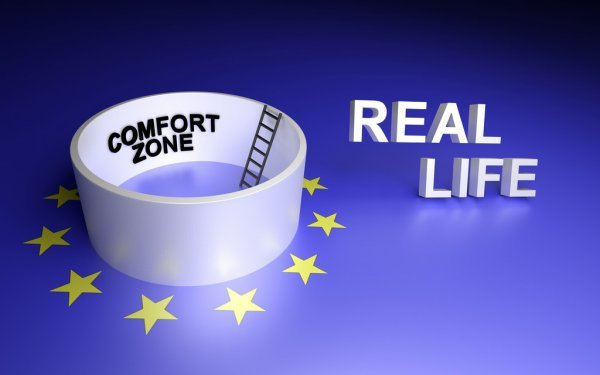
This is where you SLOWLY move from your “comfort zone” and SLOWLY place your Personal Flag in the next space you CHOOSE.
You will be able to have new comfort zones for the first time in a decade. This is not a one day “exercise,” rather it requires a number of weeks to slowly inch your way from point A to B.
I used to enjoy talking about moving away from your comfort zone and creating a new one.
But most people in the world misunderstood the concept of a comfort zone.
Nothing new really happens while you’re in this place. “Flow” only happens when you are challenged. Life in flow is pretty special.
Life in the comfort zone is what I need at night when I go to bed.
But, in order to experience cool things in life… in order to be with cool people… you have to get out of comfort zone A and move to zone B which you will then create to be comfortable. Then you move from B to C which will be uncomfortable at first and then yep… it becomes comfortable.
Here’s What Will Happen in Your Life and Your Comfort Zone
I do NOT want every minute of your life to be lived outside of ANY comfort zone. That would not be all fun or wise. I do want you to constantly create comfort where you were previously uncomfortable.
And of course you have a dozen comfort zones, all of which are context dependent. (Comfort zone with the wife, the kids, the new project, the boss, the neighbors, your ambitions, etc. etc.)
You’ve already discovered that if you jump too far from your comfort zone, too quickly, you just go right back.
This happens because you don’t have your LIFE STORY written…yet.
You haven’t spent time showing the world, The Book of You, that you wrote… that brought you from challenged to winning.
This course will fix that once and for all.
YOU ARE A SUCCESS STORY
 Date Night before Christmas, Minnesota, December 2021.
Date Night before Christmas, Minnesota, December 2021.
Really…
Now THAT might sound ridiculous…but wait…
You don’t need to fully believe this…yet… and you know me well enough to be certain that this isn’t about think it and it will appear, whatever IT IS.
The truth is, your personal story is this: You get out of one comfort zone for one aspect of life, while the other zones are still stuck in back in place where you were last year.
This is going to shift real soon.
🙂
Success means you won.
You don’t need to be Michael Jordan or Bill Gates.
YOU DO NEED TO BE THE BEST YOU
You were put on this planet for some reason or another.
Yours?
We’ll figure it out.
One thing is for sure, you weren’t designed to sit and run in place like you’re on a tread mill for the rest of your life.
All comfort zones are NOT created equally. You will find out why and how to work your way through some REALLY TOUGH challenges. And I’d love to tell you this will always be fast and easy.
But that would not be right…because it’s not correct.
Your MIND is about to get a world class tune up.
90% (a made up number that is close to accurate) of your life success, fulfillment, meaning, pride, time, achievement is going to come from your MIND.
Thinking.
You MUST learn how to RETRAIN and USE that mind to BE where you wish to be.
I’m going to ask you to do something big JUST BECAUSE I’M ASKING YOU.
You’ve seen the results of everything you’ve experienced and done in life.
You KNOW where you are today far better than any other human does.
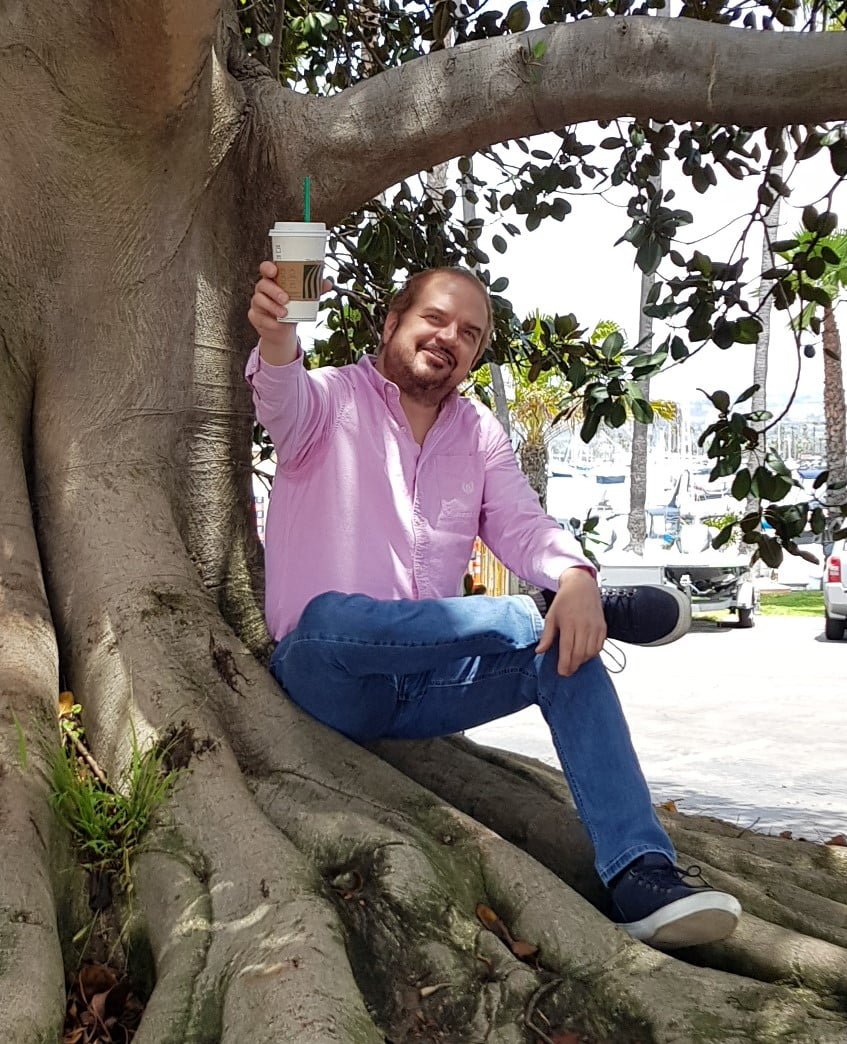 Coffee with Kevin Hogan in San Diego, 2019
Coffee with Kevin Hogan in San Diego, 2019
You KNOW how you feel inside.
You KNOW that you have tried and become frustrated doing many things to get MORE from life.
But you didn’t quite get ALL of it… and sometimes in some aspects of life you got very little at all.
Success is simply having what you want to have, being where you want to be with who you want to be and having won the games and battles you choose to win in life.
A lot of people gave up on the hard battles and the tough games. Believe me, I understand…more than you would guess. I promise.
That’s going to change.
I’m going to give you some NEW, SIMPLE, CONCRETE things to do every day.
These dozens of tiny puzzle pieces of success power are mostly unlike anything you’ve experienced before.
Sure, some of it will be familiar, but most of this is brand new!
This course is going to fill in the GAPS so that you can begin to USE all of that knowledge you have above your shoulders.
I’m not going to repeat what you already know. I will however fill in gaps and take you to a deeper level of understanding that hasn’t been experienced in the past.
How can I be so sure?
Because you have a live Life Consultant who’s worked with thousands of successful people. And I wouldn’t farm YOU out to anyone.
You ask a question, it will be answered.
The points of uncertainty are going to vanish.
The points of reality are going to appear.
The answers to questions are going to be found and the ONLY way to do that is to have the RIGHT QUESTIONS.
And then you have to know HOW to ask them. I’ll show you…
I’ve never seen anyone train anything like this.
I’ve read everyone. I’ve given particular attention to the wisest and the proven. I REALLY like PROOF. You’ll need to give me PROOF before this course is complete.
I’m going to show you the Operators, their simplicity and their profoundness.
You might say, “oh I know that…” and then you’ll do as I ask, because I ask and no other reason and report back three days later and TELL ME precisely what is shifting in your thinking, in life, WHERE you want to be and WHAT you want to be.
I’m not going to give you tons of “actions” to do. Mostly I am going to show you how to master your thinking and life, using the Operators of a Successful Life.
I look at this and I think, it’s a lot to ask of anyone.
Trust is earned.
Maybe I’ve earned yours over the years.
If so, you’ll put your chips out there with mine and we’ll both walk away winners.
And that IS THE DEAL.
I want you to look at your life and without hesitation I want you to say, “I WON!”, with respect to ALL aspects of life.
There are people out there that NEED your wisdom, knowledge and love.
I want you to know that YOU have NOT come full circle and tasted all the life that there is to have.
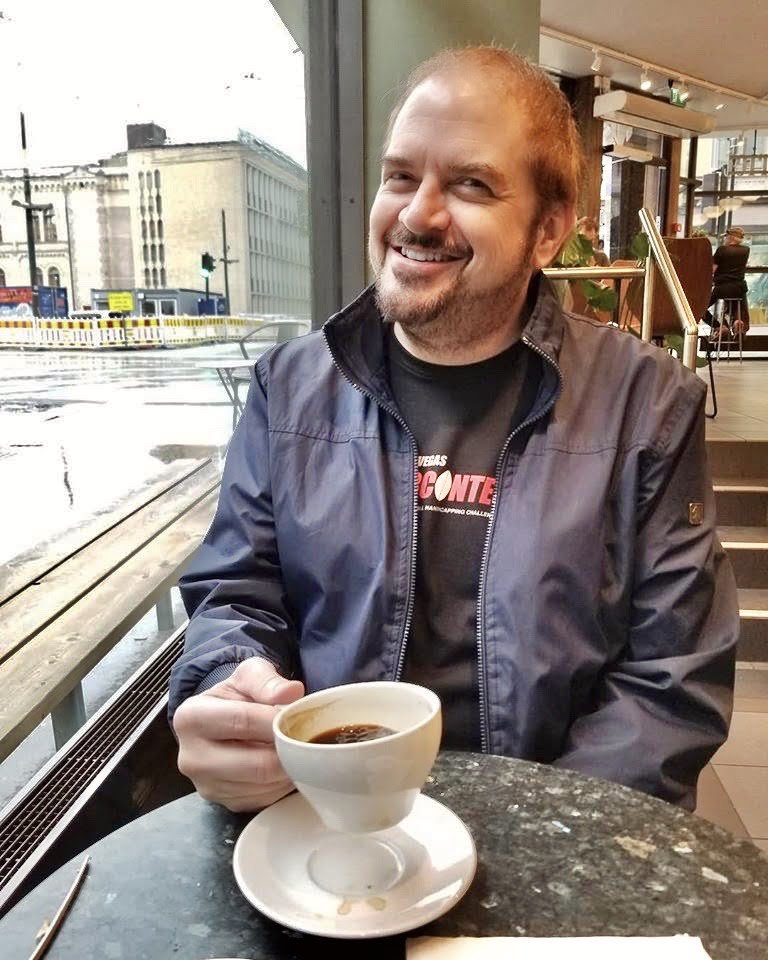 Coffee with Kevin Hogan in Bergen, Norway, September 2019
Coffee with Kevin Hogan in Bergen, Norway, September 2019
There are projects to be done, love to be given and received.
There are victories to be had and a STORY that ends with YOU WINNING and being appreciated by many.
“I WON.”
That’s what I want to hear you say…
Persistence, desire, drive, belief, outcomes. These are FACTORS.
Excellent.
Everyone has heard of them. Everyone knows that persisting is important. Desire is critical to success in love, business, influencing others. Belief is huge in every aspect of life. You know it. I know it.
Everyone needs to know the factors and implement them in life.
But…
REALLY… how?
If all it took were the FACTORS to achieve and succeed then everyone would (theoretically) have already done it!
But that is not the case.
What’s missing are the OPERATORS. Operators are like the plus (+) sign or the multiply by (x) sign. Simple enough.
So what are the operators? If you have the operators, does that yield instant success?
Nope.
But you DO need to have them and work with them every single day.
Good news!
There are fewer than a handful of Life Operators.
I’ve scratched the surface of Life Operators at Influence: Boot Camp and for some of my Inner Circle members.
And, I’ve been telling my Inner Circle that as soon as I have time I’m going to put together THIS course. But I never got enough time.
So 10 months ago, after collecting and plowing through 4 years of studies, research, and the best ways to fill the gaps, I said, “STOP” …I’m making the time, NOW.
And that is what I have done.
You see, if you have the OPERATORS AND the FACTORS AND you use them AS INSTRUCTED, it would be very, very hard to screw up.
The Success Algorithm is going to require effort, but it is WELL DESIGNED and the required SECRET daily actions essentially DEMAND that you succeed.
(I haven’t thought of every Black Swan…but I’ve lived through MOST of those birds so they’re ALL dealt with here.)
In other words, almost any human with the operators to move the factors will succeed in life. Really? Sounds hyperbolic to me and I’m writing this.
I’ve spent more time ripping this entire course apart than you can imagine. At every stage, I said, “no way, that won’t work for everyone.”
And sometimes I found that this was a great idea. People not able to move about freely in a free country will still benefit from this work but it will not yield the results you will get in a free society.
But what about everyone who IS able to think and communicate in a free nation?
Yep.
You’re going to be a “better you.” You’re going to FEEL success and it FEELS GOOD.
It works… the end result is SUCCESS.
And that is cool.
You’ve noticed that for the last four years I have not put out ONE new program.
I promised myself THIS would be the next one. And it’s not even a program. It’s bigger than I anticipated. The operators alone, while incredibly simple in concept do take time to integrate and apply and I am very, very focused on APPLICATION in this course.
And…it’s a BIG course. It’s eight weeks.
If you’ve ever taken an E- Course with me you know the following:
– You don’t have to be online at a certain time.
– You have ME as the go to person who will answer YOUR LIFE SPECIFIC questions through the term of the course. (The course begins May 10!)
– You will have more content than you have ever experienced in any E Course on this planet.
– It’s ALL about you.
– You WILL be required to do the content by the end of the course unless something dramatically bad happens in life.
– My expectations of you are higher than your expectations for the course.
This course is the culmination of a lifetime of work to date. Sure maybe I’ll have something more fun someday, I really don’t care right now.
This is the MOST IMPORTANT and MEANINGFUL course I could have put together for you. It is the treasure chest that we all look for.
 The River Siene, Paris, France, February 2020
The River Siene, Paris, France, February 2020
USE the operators and you win.
They are the missing elements. And the cool part is that YOU can do this.
Promise.
The content of this course and knowing EXACTLY HOW to use it will not change your life.
It WILL allow YOU to BE the person YOU want and need to be. And of course you’ll always BE YOU, just a BETTER YOU. A you that makes a bigger difference. A you that is safer, more secure. A you that is willing to PUT FORTH THE EFFORT to control your own destiny.
You won’t be able to write out a script for the rest of your life. But you WILL get to where you want to be because you will know what to do, when, why and where…and most importantly HOW.
Knowing the factors will certainly be a plus but ultimately in THIS course they don’t matter.
2 months from now…
1) If you choose, you will be able to influence in mass.
2) You will find out precisely how to find the answers you need in life.
3) You’ll easily see how to implement those answers.
4) You will see that operators are different from factors. Factors are difficult.
Operators are remarkably simple.
5) You do need BOTH and you need to SEE and EXPERIENCE both to accomplish and live the life you want.
You do NOT need to be online at any specific time or on any specific day. You DO need to do your projects in YOUR 8 WEEKS!
This is the rocket launch and operators manual.
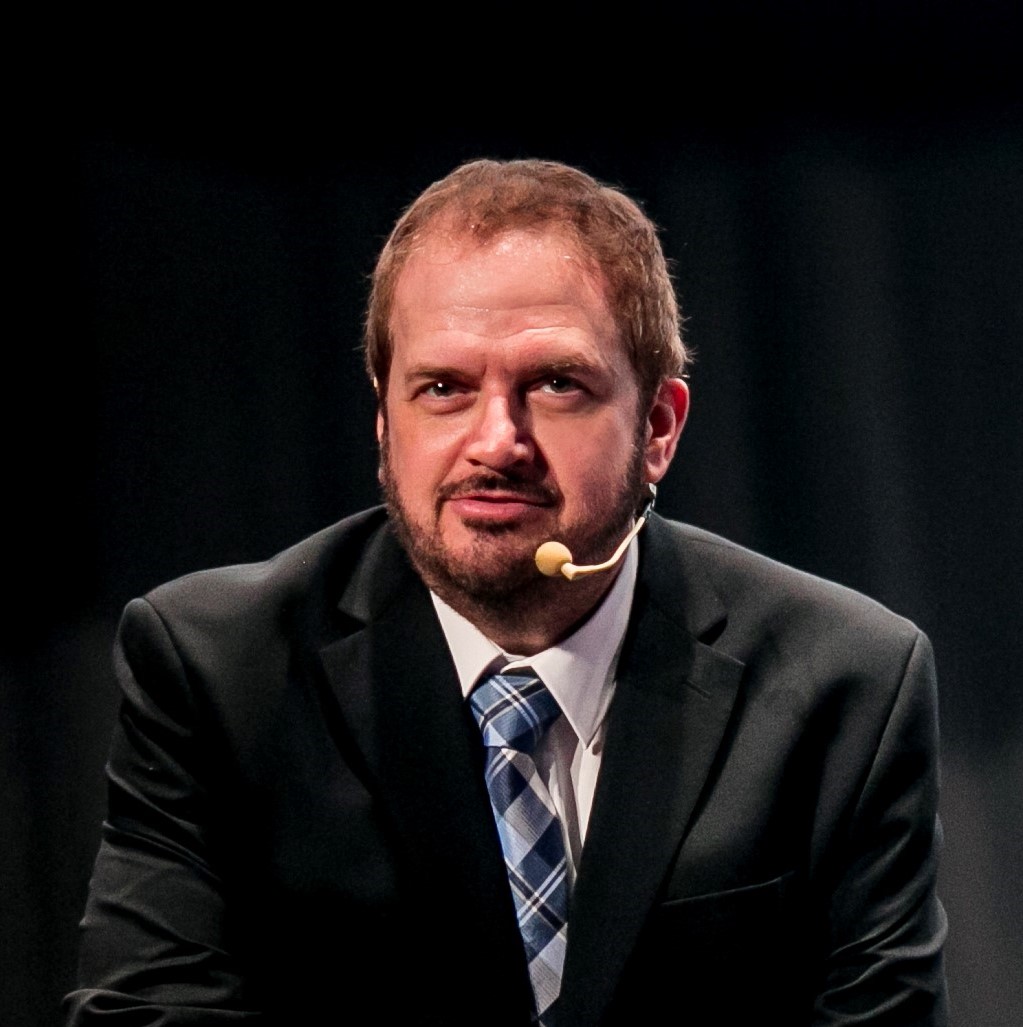 Sound Check before massive event in Poland 2018.
Sound Check before massive event in Poland 2018.
The Success Algorithm is $4995.
Credible group of sharp minds that will have The Success Algorithm!
You can apply today for the Success Algorithm: The Comprehensive 10 Week Course.
You’ll be notified within 3 days as to whether your application is accepted and your card will not be charged if you are for any reason denied.
There is a limit of 30 people who will be able to participate. Kevin can only keep up with so many people before it becomes more than even he can handle. Make sure you put a note to Kevin in the application for Kevin as to why you want him to work with you for the next 2 1/2 months as well as any questions you might have once the course begins.
The Success Course has received some very nice endorsements including Andy Watson, one of our more discriminating clients. The $4,995 tuition is cut for the covid period to 10 installments of $195 or $1,995.





















